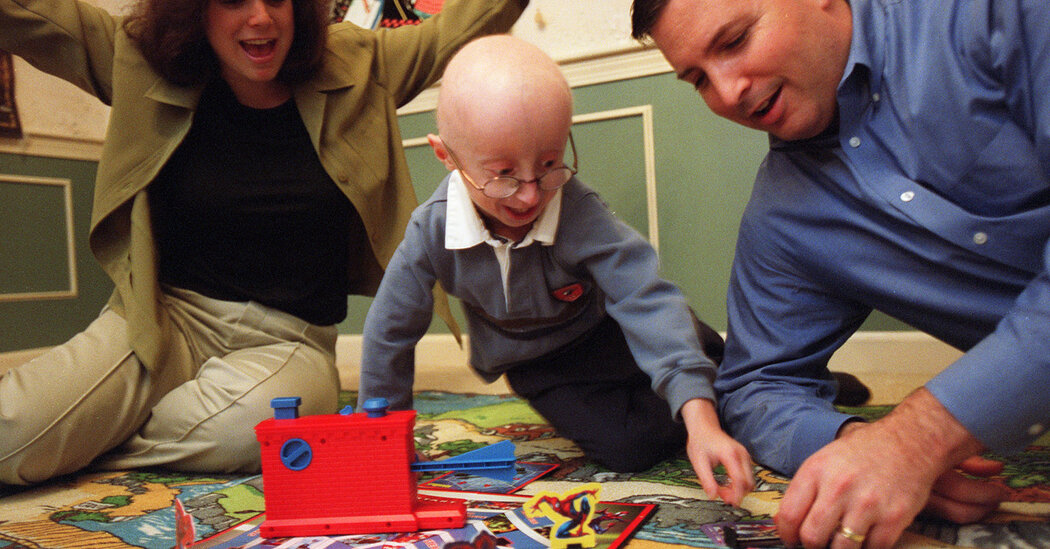
A cure for an ultrarare disease, progeria, could be on the horizon. The disease speeds up aging in children and dramatically shortens their lives. But, until recently, there was no path toward a highly effective treatment.
Now, a small group of academics and government scientists, including Dr. Francis Collins, the former director of the National Institutes of Health, is working with no expectation of financial gain to halt progeria in its tracks with an innovative gene editing technique.
If gene editing is effective in slowing or halting progeria, researchers say, the method may also help to treat other rare genetic diseases that have no treatments or cures and, like progeria, have aroused little interest from drug companies.
After a quarter-century of research, the group is approaching manufacturers and planning to seek approval from regulators for a clinical trial on progeria gene editing.
The project “has merit, but also risk,” said Dr. Kiran Musunuru, a gene editing researcher at the University of Pennsylvania, who also advises a gene editing company. He cautioned that although the editing worked well in mice, there is no guarantee that it will work in human patients.
Dr. Collins first became interested in progeria while he was training in medical genetics at Yale University in 1982, almost three decades before he was appointed to lead the N.I.H. One day, he saw a new patient, Meg Casey. She was less than four feet tall, hairless under her wig and wrinkled like an older woman. She was only in her 20s.




